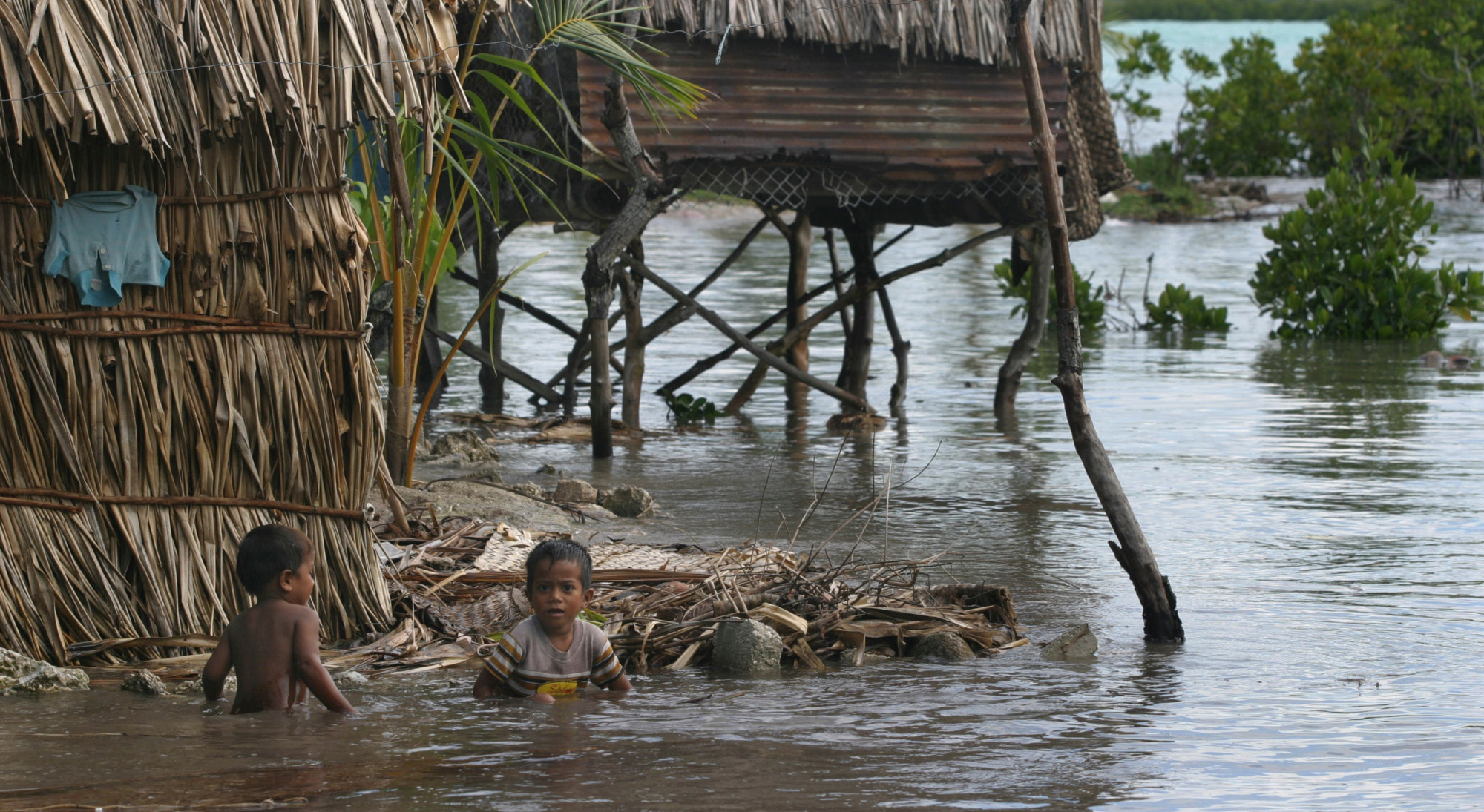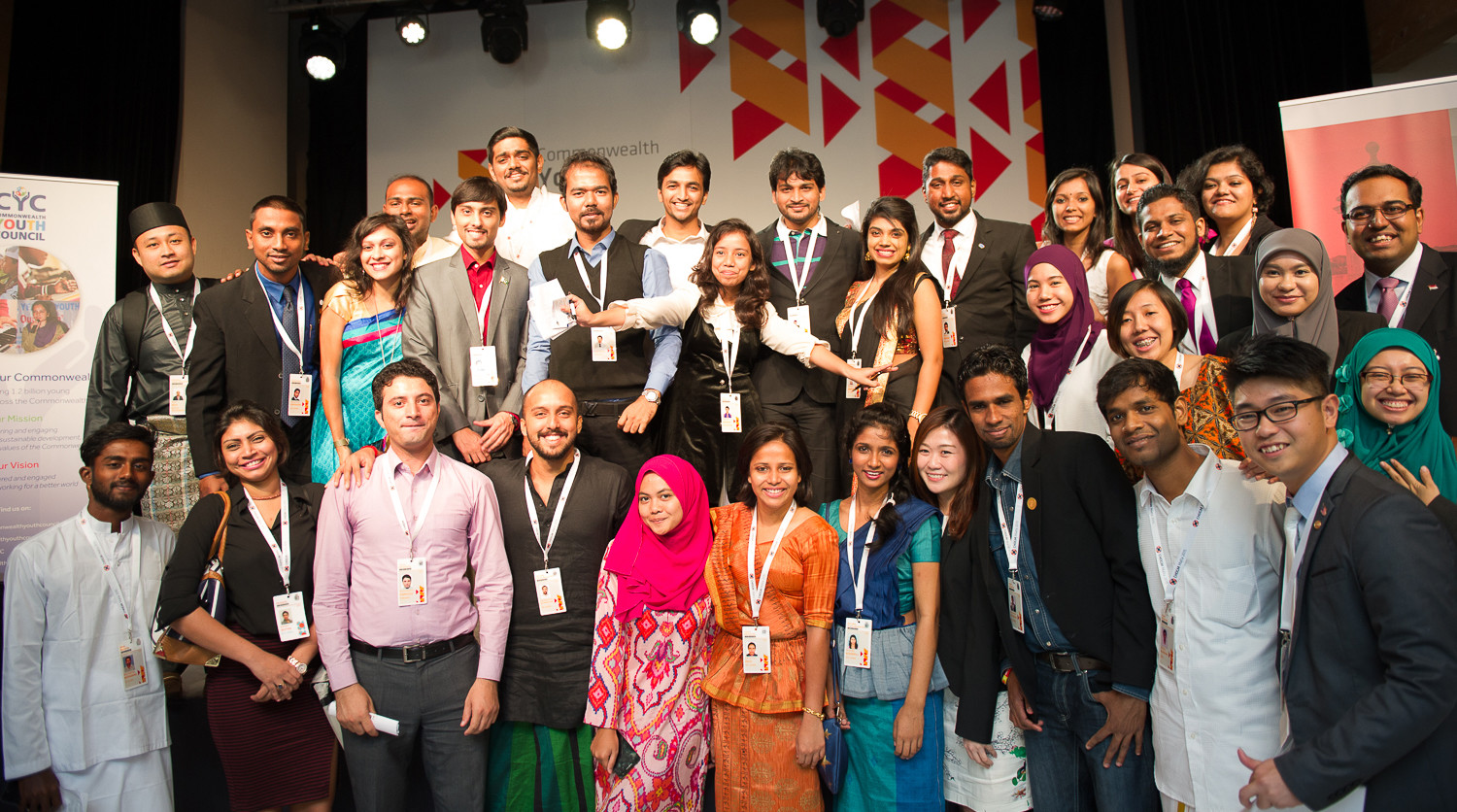In Kiribati and other Pacific island countries, regular flooding from rising sea levels is destroying houses, killing crops and poisoning drinking water.
In the Caribbean, vulnerable countries are suffering the onslaught of some of the deadliest storms since records began.
On land, climate change is leading to desertification, droughts, wildfires, decreasing crop yields, and diminishing food and water security.
In 2017, hundreds of people perished in mudslides in Sierra Leone. There were also floods in Bangladesh, Pakistan and India, displacing millions and taking lives.
In recent times, East African countries have suffered some of the worst droughts, causing severe food shortages and a refugee crisis.
Although many countries experience extreme weather it is now scientifically proven that climate change is amplifying the intensity, frequency and extent of these disasters. The increase in carbon dioxide and other gases from industrial processes has resulted in such gases trapping heat in our atmosphere and changing the dynamics of the Earth’s climate.
A response to climate change: regenerative development
In October 2016, the Secretariat held a two-day workshop with the Cloudburst Foundation at
Marlborough House in London. Its focus was on regenerative development and climate change.
Regenerative development encompasses a belief that climate adaptation and resilience must be bottom up and place people and ecosystem service and function at its core.
“What’s that?” you might ask.
The concept of regenerative development encompasses a belief that climate adaptation and resilience must be bottom up and place people and ecosystem service and function at its core. Many ecosystems form critical building blocks that assist us in building resilience to climate change. For example, coral reefs, so vulnerable to increased storminess, perform essential flood protection. The ecological protection of land and river catchments helps us to better assure water security and guard against land degradation and drought.
The Secretariat is focused on those aspects of regenerative development that help us move forward the human security-related dimensions of climate change. We place the climate resilience of our communities at the core of all of our work.
Taking a human security approach towards climate change allows for the thinking in depth about the factors that impact the security of people’s livelihoods – local economies, food, environment and health. Factoring climate impacts (flooding, hurricanes, storms) into human security will allow us to apply a more holistic approach to climate change.
More than 60 scientists, ecologists, activists, academics and funders attended the workshop. They explored technologies and approaches to reduce harmful carbon emissions and tackle global warming, while addressing poverty and boosting economic development.
They also discussed how these approaches can fit into the Commonwealth climate change programme. That includes the Climate Finance Access Hub, which is starting to help countries access millions pledged by the international community for climate action.
Building momentum
On 18 May 2017, we again partnered the Cloudburst Foundation to host the high-level Regenerative Development and Climate Change Conference.
Among the 123 participants at the conference were HRH The Prince of Wales, former heads of state, 17 high commissioners, leading climate change experts, and representatives from the United Nations Convention to Combat Desertification and other international organisations.
Keynote speakers included:
- HRH The Prince of Wales
- global advocate on climate change action and former president of Kiribati, Anote Tong
- former UN Secretary-General’s special envoy on climate change and former president of Ireland, Mary Robinson
- New York bestselling climate change author Paul Hawken
- scientist Janine Benyus
- design, art, science, and technology specialist David McConville
- authority on regenerative development Ben Haggard.
Watch: Prince Charles, Secretary-General Scotland, and other leaders talk about “Regenerative Development”, the transformative Commonwealth approach to climate change – one offering hope to small, vulnerable states. (London, May 2017)
Hope for the future
“Time and time again in Commonwealth countries, including Dominica, Fiji, Vanuatu and more recently Mozambique – we have seen how climate-related disasters can in minutes undo decades of development gains,” the Secretary-General said. That is why she encouraged this new approach to tackling the problem.
“The magnitude of the threat from climate change, especially for those whose endowment or stage of development renders them more vulnerable and less resilient, make it incumbent upon us to shift from mere adaptation and mitigation towards approaches capable of transforming climate change into a window of opportunity,” she told delegates to the conference. “Regenerative development offers ways of tackling climate change by means that can be adopted by the most vulnerable countries, and are appropriate to the day-to-day lives and livelihoods of their inhabitants.”
The purpose of the conference was to:
- bring these visionaries together with policy-makers in order to create awareness of regenerative development
- build political support for it
- influence public discourse on climate change
- and, perhaps most importantly, build a business case for adopting the new approaches in climate-vulnerable countries.
The Secretary-General called on all delegates to take action.
Bringing the financiers on board
Following the May 2017 conference, we held another workshop at Marlborough House in June. It focused on the financing of regenerative development. Insurers, multinationals, investment banks and hedge fund managers were among the global financiers there who expressed support for our initiative.
We have also linked regenerative development to climate finance through the work of our Climate Finance Access Hub. The next stage is to develop some proof of concept projects for this exciting programme.
“The Commonwealth is a unique group of nations united by a willingness to collaborate for a common good: a ‘common wealth’” – Dr Daniel Wahl, Consultant and Educator in Regenerative Development


